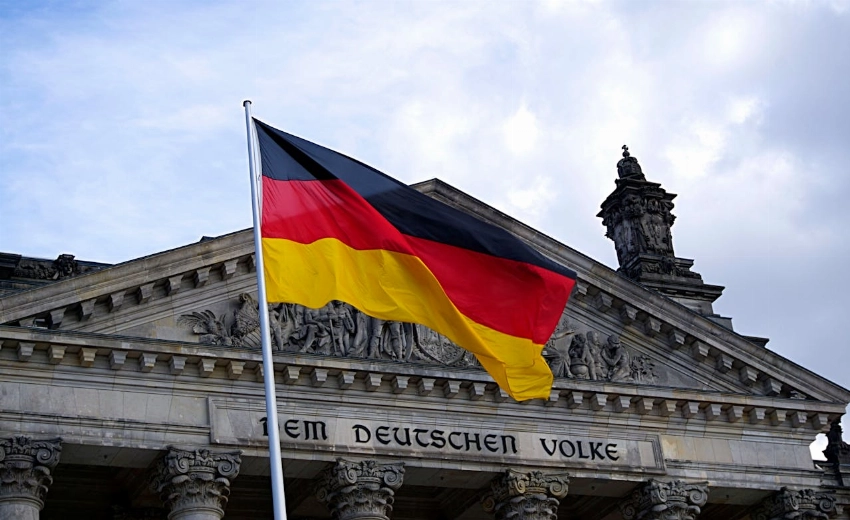Key Highlights
- What Makes Germany the Premier Destination for International Master's Students in 2025?
- Why Choose Germany for Your Master's Degree in 2025?
- Are Latest Master's Degrees Really Free in Germany for International Students?
- What Are the Current Essential Admission Requirements for Master's Programs in Germany?
- How Does the Master's Degree Application Process Work in Germany in 2025?
- What are the Latest Financial Requirements That International Students Must Meet in 2025?
- What DAAD Scholarship Opportunities Are Available for International Students in 2025?
- Which Are the Top Universities Offering Free Master's Programs in Germany in 2025?
- What Types of Master's Degrees Can International Students Pursue in Germany in 2025?
- How Long Do Master's Programs Take to Complete in Germany in 2025?
- What Are the Work Opportunities for International Students During Their Studies in 2025?
- What Is the Student Visa Process for Master's Studies in Germany in 2025?
- Conclusion
A master degree in Germany for international students is among the finest opportunities to integrate academic merit with economic affordability. Most free master's degrees in Germany for international students are offered in state-owned universities without any tuition fees, regardless of nationality.
International students do not have to face language barriers in accessing German education because they have 1,400 master's programs and more than 1,000 master's programs taught entirely in English. The admission needs typically include a known bachelor's degree, evidence of language proficiency, and proof of financial ability of not less than $11,904 a year.
What Makes Germany the Premier Destination for International Master's Students in 2025?

Master degree in Germany for international students where one can find an extraordinary combination of the quality of studies, low cost of education, and employment opportunities.
-
Largest economy in Europe
-
Powerful research and innovation centres.
-
Top 100 University in the world.
-
Good English-based courses.
-
18 months' work permit after studying.
Germany feels that education is not supposed to be a commercial product. This is why the government funds its public universities, which are tuition-free to local and international students.
Why Choose Germany for Your Master's Degree in 2025?
Master degree in Germany for international students are among the best worldwide, with stringent accreditation requirements guaranteeing high-quality teaching in all programs. The nation offers 18 months of post-study work authorisation to foreign graduates, enabling them to pursue their careers in the most robust European economy. Also, Germany provides more than 2,000 study programmes in about 400 state-funded universities, and has a wide range of specialisation opportunities.
Are Latest Master's Degrees Really Free in Germany for International Students?
Yes. In nearly all state universities, tuition is less if one is pursuing free masters degree in Germany for international students, an EU, or a non-EU student.
But students pay semester fees of 100-400 euros, which usually cover:
-
Administrative charges
-
Student unions' donations.
-
Free local transportation
Understanding the Current Free Education System
Another strategy by the German government to attract the best to their country and motivate them to remain and help the German economy after their studies is the tuition-free policy that applies to international students. This is a sustainable free education model because taxes finance state-funded universities.
What Are the Latest Exceptions to Free Masters Degree in Germany for International Students?
The same rule does not apply to all states. Here are the exceptions for free masters degree in Germany for international students:
-
Baden-Wurttemberg: Non-EU students are charged 1500 per semester (3000/year) in Baden-Wurttemberg.
-
Bavaria: From 2024, a few universities will be allowed to charge.
-
Technical University of Munich (TUM): Between 8,000 and 12,000 euros yearly for master's programs.
-
University of Wuerzburg and TH Deggendorf: Free tuition still.
What Are the Current Essential Admission Requirements for Master's Programs in Germany?
For master degree in Germany for international students, there are some academic and language-based admission conditions, and necessary documentation is also needed.
Also Read: Germany Visa for Education Recognition
Academic Requirements in 2025
Recognised Bachelor's degree (check DAAD's admission database)
Minimum Grades:
-
75% or 7.5/10 CGPA for most universities
-
80%+ for top universities like TUM or Heidelberg
Official transcripts and diploma certificates
Latest Language Proficiency Standards
For a master's degree in Germany for international students, most universities expect evidence of language proficiency based on the program's state, i.e., it may be taught in English or German. International students must submit valid test scores showing they can follow the academic coursework.
English-Taught Programs:
-
IELTS ≥ 6.5
-
TOEFL iBT ≥ 90
-
Duolingo ≥ 110
German-Taught Programs:
-
TestDaF (4x4)
-
DSH-2
-
Goethe-Zertifikat C1
These minimum requirements for master degree in Germany for international students might differ slightly by university, but when the minimum score is met, one can be assured of being eligible to be admitted.
Current Additional Documentation
In addition to academic transcripts and test scores for language tests, master degree in Germany for international students also requires supporting documents to assess the students' profiles. These typically include:
-
CV/Resume: A summary of academic experience, work experience, internships, and capabilities.
-
Statement of Purpose (SOP): A personal essay identifying academic interests, career objectives, and why the program/university was selected.
-
Letters of Recommendation: Sometimes mandatory, typically from professors or employers, to endorse the skills and personality of the applicant.
-
Subject-Specific Evidence: Other evidence, e.g., GRE/GMAT scores or work samples, may be needed in case of specialised programs.
Offering documents that are well prepared is a way of enhancing admission opportunities.
|
Requirement |
English-Taught Program |
German-Taught Program |
Notes |
|
Bachelor’s Degree |
Required, recognised internationally |
Required, recognised internationally |
Must check the DAAD admission database |
|
Minimum Grade |
75% (avg. universities), 80%+ (top unis) |
75% (avg. universities), 80%+ (top unis) |
CGPA: 7.5/10 or above |
|
English Proficiency |
IELTS ≥ 6.5, TOEFL iBT ≥ 90, Duolingo ≥ 110 |
n/a |
Required for English programs |
|
German Proficiency |
n/a |
TestDaF (4x4), DSH-2, Goethe C1 |
Required for German programs |
|
Supporting Documents |
CV, SOP, recommendation letters, work samples (if required) |
Same as left |
GRE/GMAT for some programs |
How Does the Master's Degree Application Process Work in Germany in 2025?

For a master's degree in Germany for international students, the application process to the master's programs is organised systematically, with specific time frames and deadlines per the type of university and program. This process is essential in the case of successful admission into German universities.
Latest Research and Program Selection Phase
Students are to start by analysing program compatibility with career objectives, determining whether their undergraduate degree matches the master's program, and whether they have the required language skills. Master degree in Germany for international students has more than 1,400 master's programs and can be found in university databases, some taught in English.
Current Application Submission Process
There are several steps in the application process for master's degree in Germany for international students:
-
Research Programs- Research eligibility, language skills, and how it fits in with your undergraduate major.
-
Choose Universities -uni-assist or university portals
-
Ready Papers- Notarised certificates, language scores, APS certificate (Indian, Chinese, Vietnamese students).
Apply Before Deadlines –
-
Winter Semester: July 15
-
Summer Semester: January 15
-
Wait to Get an Admission Letter: Required to secure a visa.
Document Verification Requirements in 2025
Indian, Vietnamese, or Chinese students who attended classes in their own countries have to receive an APS certificate confirming their educational background and authentic certificates. This is an extra requirement in visa applications and university admissions in these nations.
What are the Latest Financial Requirements That International Students Must Meet in 2025?
International students must demonstrate financial capability to support themselves during their master's degree in Germany, with specific amounts mandated by German immigration authorities. This financial proof is essential for both university admission and student visa applications.
Also Read: Germany EU Blue Card Visa
Current Mandatory Financial Proof
The amount required for master degree in Germany for international students is 11,904/year (992/month). Options Include:
-
Blocked account in Germany
-
Income-proved parental guarantee.
-
Scholarship certificate
-
The financial guarantee of a German resident.
Monthly Living Costs Breakdown in 2025
|
Expense |
Average Cost (EUR) |
Average Cost (INR) |
|
Rent and Utilities |
400-600 |
35,600- 53,400 |
|
Food and Drinks |
200-300 |
17,800- 26,700 |
|
Health Insurance |
100 |
8,900 |
|
Transport and Phone |
30-60 |
2,670- 5,340 |
|
Leisure/ Other |
50-100 |
4,450- 8,900 |
|
Total |
1,000 |
89,000 |
What DAAD Scholarship Opportunities Are Available for International Students in 2025?
The German Academic Exchange Service (DAAD) provides extensive scholarship programmes that fund over 100,000 scholarships each year to assist master's degrees in Germany for international students. These scholarships pay the winning candidates the tuition fee, living costs, travelling expenses, and health insurance.
Also Read: Germany Opportunity Card: Benefits, Eligibility & Application
Latest DAAD Master's Degree Scholarship Benefits
DAAD master's degree scholarships in Germany offer holistic financial assistance to international students for master degree in Germany for international students so that they do not have to worry about living expenses and hence can concentrate on their studies. The benefits include:
-
A stipend amounting to €992 monthly to meet daily expenses like rent, food, and utilities.
-
Health and accident cover that will provide complete medical cover throughout the study.
-
Travel allowances to pay international travel expenses between the home country and Germany and vice versa.
-
Annual study allowance to cover books, equipment, or research requirements.
-
Rent subsidies and family allowances (where necessary) are available for students with spouses and children.
Current DAAD Application Requirements and Timeline
To apply for a DAAD master's degree scholarship for master degree in Germany for international students must meet specific criteria that guarantee their academic preparation and professional aptitude. The key criteria are:
-
Bachelor's Degree in the Past 6 Years- The candidate must have freshly graduated from their undergraduate course to ensure academic aptitude.
-
Minimum Work Experience Requirement- 2 years of experience- work experience is required, demonstrating the ability to use the knowledge in practice.
-
Language Proficiency (English or German) - Language evidence is mandatory based on the medium of teaching the selected course.
-
Motivation Letter/Research Proposal- The candidates are required to state their academic interests, career ambitions, and why they should choose Germany.
|
Benefit |
Details |
|
Monthly Stipend |
€992 |
|
Health/Accident Insurance |
Covered |
|
Travel Allowance |
International travel costs covered |
|
Annual Study Allowance |
For books, equipment, and research |
|
Family/Rent Allowance |
Available for dependents, spouse, child, etc. |
|
Duration |
Entire program (typically 1–2 years) |
Which Are the Top Universities Offering Free Master's Programs in Germany in 2025?

Various world-renowned universities in Germany provide tuition-free master degree in Germany for international students, constantly being ranked globally and remaining affordable.
Latest Leading Public Universities
Here are some leading universities for master degree in Germany for international students:
-
Ludwig-Maximilians-Universität München (LMU Munich) – QS Rank 59
-
RWTH Aachen University – QS Rank 99
-
Humboldt University of Berlin – QS Rank 126
-
University of Bonn – Wide range of English-taught programs
-
TU Darmstadt – Strong STEM programs
-
FAU Erlangen-Nürnberg – 70+ master’s degrees, 5,000+ international students
Current Universities with English-Taught Programs
Extensive tuition-free master's programs with a strong emphasis on English are available in the University of Bonn, the University of Hamburg, and TU Darmstadt. FAU Erlangen-Nürnberger offers more than 70 Master level programs and has a population of well over 5,000 international students. The University of Münster and Hamburg University of Technology also have good international programs that offer English instruction options.
What Types of Master's Degrees Can International Students Pursue in Germany in 2025?
The following are some of the top universities for master degree in Germany for international students:
-
Ludwig-Maximilians-Universität München (LMU Munich) - QS Rank 59.
-
RWJ Barnabas University Health -QS Rank 99
-
Humboldt University of Berlin- QS Rank 126
-
University of Bonn - Huge variety of English-speaking programs.
-
Strong STEM Programs - TU Darmstadt.
-
FAU Erlangen-Nürnberger- 70+ master's, 5,000+ international students.
Latest Academic Degree Classifications
Master of Arts (M.A.) degrees are offered in the humanities, social sciences, and other courses associated with the arts. M.Sc. programs are in science, technology, engineering, and mathematics (STEM). An MBA offers professional training in management and administration of business, whereas the Master of Education (M.Ed.) gives students training in teaching at high school.
Current Research vs. Practice-Oriented Programs
Master's degree in Germany for international students offered in research-based programs are for students who intend to study PhD programs and to work in academic institutions, and have a heavy emphasis on theoretical content and methodology of research. Professional skills and industry applications are taught in practice-oriented programs, which are more appropriate to students joining a corporate or technical position after graduation.
|
University Name |
QS Rank |
Notable Features |
Language of Instruction |
|
LMU Munich |
59 |
Research powerhouse |
English & German |
|
RWTH Aachen |
99 |
STEM, Engg., industry ties |
English & German |
|
Humboldt University of Berlin |
126 |
Sciences, humanities |
English & German |
|
University of Bonn |
- |
Variety, international focus |
English & German |
|
TU Darmstadt |
- |
Top for STEM |
English & German |
|
FAU Erlangen-Nürnberg |
- |
70+ master’s, +5,000 int’l stud. |
English & German |
How Long Do Master's Programs Take to Complete in Germany in 2025?
Master's degree in Germany for international students typically follows standardised duration frameworks aligned with European higher education standards and ECTS credit systems. The program length depends on the type of degree and the student's previous academic background.
Latest Standard Program Duration
Most master degree in Germany for international students are 2-year (four semesters) programs, which are developed based on three-year Bachelor's programs. Universities of Applied Sciences can also provide 1.5-year degrees (three semesters) to four-year Bachelor's degree students. One-year programs are less frequent, usually in specialised areas such as fast-track MBA programs.
Current ECTS Credit Requirements
Most master degree in Germany for international students comprise 120 ECTS credits, with some programs having 90 or 60 ECTS credits available to students with 4-year undergraduate qualifications (240 ECTS credits). Universities offer more flexibility, where the maximum study period typically has a limit of six semesters in case of two-year programs, and the student is free to attend more than the standard period.
What Are the Work Opportunities for International Students During Their Studies in 2025?
International students are permitted to work in the course of study.
-
EU/EEA students have 20 hours/week throughout the semester.
-
Students not EU have 120 full days OR 240 half days annually.
-
University student assistants have no limits on the number of work hours.
Post-Study Work
-
An 18-month residence permit to seek employment in the student's study area.
-
International acknowledgement of German master's.
Also Read: Top 10 Highest Paid Jobs In Germany
Latest Work Hour Regulations
The maximum number of hours that EU/EEA/Switzerland students are allowed to work is 20 per week during term-time and 40 hours per week during semester breaks. Third-country international students can work 140 full days or 280 half-working days a year. Such limitations do not extend to students employed as academic or student assistants in universities, but students need to notify the foreign officers.
Current Post-Graduation Work Opportunities
The international graduates are given residence permits of 18 months to seek employment related to the discipline they are studying, and can take any job within this duration. EU/EEA students can work in Germany without restrictions once they graduate, and the German degree will give them international career opportunities worldwide.
|
Category |
Detail |
Maximum Work Hours |
|
EU/EEA Students |
Can work 20 hrs/week (semester time); full during breaks |
20/week during semester, 40/week break |
|
Non-EU Students |
120 full days or 240 half days per year (20 hrs/week) |
120 full/240 half days per year |
|
On-campus Assistant |
No hour limit for student assistants (any nationality) |
Unlimited |
|
After Graduation |
18-month job-seeking visa, unrestricted work |
18-month permit |
What Is the Student Visa Process for Master's Studies in Germany in 2025?

International students from most countries require German student visas to pursue master's degrees, with specific requirements and processing timelines that vary by nationality. The visa application process is integral to the overall admission strategy for studying in Germany.
Latest Visa Application Timeline and Requirements
The students are supposed to book visa appointments around three months before the date they plan to start their program. One needs a genuine passport, an admission letter, education certificates, language proficiency evidence, financial documents, and health insurance. The visa interview exercise considers the true intent of studying the student and their capacity to sustain themself in Germany.
Current Health Insurance Requirements
Germany has a mandatory health insurance policy, to which all students must have valid health insurance, and students below 30 years old are allowed to have discounted statutory health insurance. Regarding visa applications, students can purchase travel health insurance coverage of at least 30,000 before buying student health insurance in Germany. More popular plans, such as DR-WALTER insurance, are designed to consider only international students, exchange participants, and other family members.
Conclusion
Pursuing a master degree in Germany for international students in 2025 offers world-class education, affordable or free tuition, and strong career prospects. With 1,000+ English-taught programs, DAAD scholarships, and post-study work opportunities, Germany stands out as a top destination. Careful planning of admission, finances, and visa steps ensures success. For international students, a master's degree in Germany can be a truly life-changing choice.
Contact TerraTern for more information on master degree in Germany for international students.








